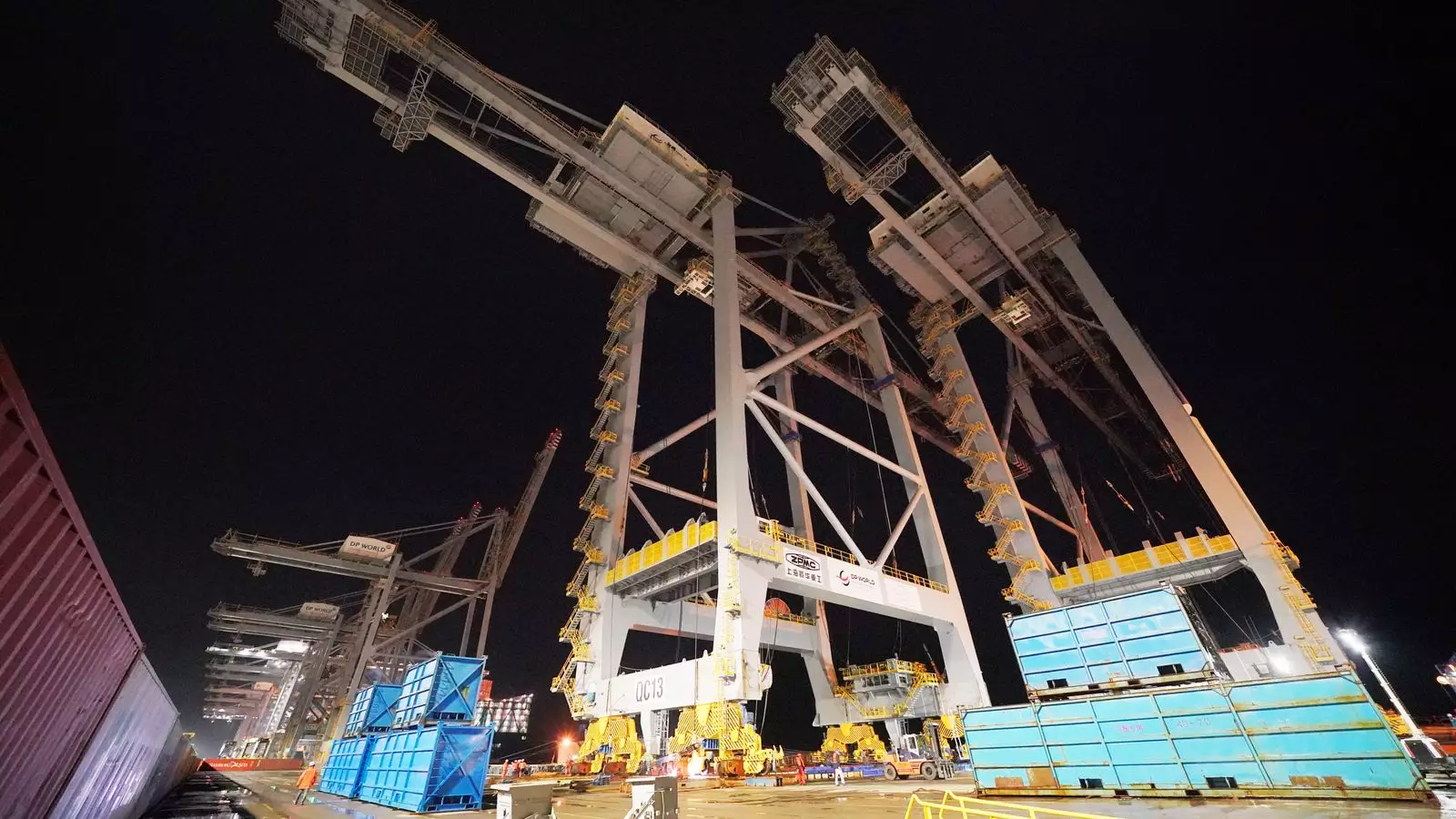Investment announcements often serve as powerful indicators of economic health and governmental efficacy. The recent £1 billion investment pledge by the Dubai-based firm DP World for the London Gateway port exemplifies this dynamic. However, emerging controversies surrounding this commitment highlight the complex interplay between political discourse and economic partnerships. Recent statements from officials revealed that substantial discussions were necessary to secure this crucial investment, underscoring the fragility of diplomatic relationships in the face of public and political pressures.
The backdrop to this investment announcement involves significant political turbulence. Transport Secretary Louise Haigh’s critical remarks regarding P&O Ferries, a subsidiary of DP World, threatened to derail the £1 billion investment. Haigh’s branding of the company as a “rogue operator” and her call for consumer boycotts highlight the potential consequences of negative media representation and political rhetoric. Such statements can have a cascading effect, raising questions about the stability of business operations and investor confidence in the UK market.
The past actions of P&O Ferries, particularly the controversial decision to dismiss 800 British workers in favor of cheaper foreign labor, have left a cloud over its reputation. These developments not only fuel public discontent but also complicate the government’s ability to foster a favorable investment climate. When high-profile officials take a hard stance against a business entity, the repercussions can reach far beyond immediate public sentiment and lead to tangible investment consequences.
In a subsequent interview, Business and Trade Secretary Jonathan Reynolds acknowledged the need for “conversations” to clarify the government’s position and reassure DP World of its commitment to the investment. His remarks indicate a level of urgency in addressing the fallout from Haigh’s comments. The necessity of negotiating this relationship highlights a characteristic challenge faced by policymakers when private sector interests intersect with public sentiment.
Furthermore, the timing of the investment summit raises eyebrows as it precedes the upcoming budget announcement. This strategic maneuver begs the question: Is the government attempting to bolster investor confidence through overt demonstrations of support prior to the budget, or is it simply reacting to political pressures? The pinpoints of this agenda reveal a turbulent terrain in which economic aspirations must often navigate the rocky landscape of political discourse.
As the government prepares for the investment summit, questions surrounding the attendance of prominent figures—most notably Elon Musk—bring additional scrutiny. While Reynolds avoided specifics regarding Musk’s absence, the reality remains that the presence of influential business leaders can significantly impact the public perception of such events. The decision to exclude certain individuals raises concerns about the accessibility and appeal of the summit. It evokes broader questions regarding the criteria for participation and the implications of what could be perceived as a selective representation of investors.
The government’s insistence that the event will focus on “who can bring the kind of investments that will make the biggest difference” suggests a strategic filtering process that may inadvertently alienate potential allies in investment sectors. The absence of notable figures could diminish the perceived importance and potential of the summit, leading to skepticism among stakeholders regarding the efficacy of governmental efforts to attract global investment.
The DP World investment situation serves as a cautionary tale regarding the delicate intricacies of investment politics. It highlights not only the pressing nature of government-business relations but also the repercussions of public remarks on vital economic commitments. As the government seeks to bolster investments in the UK, the path forward will require astute navigation through political landscapes marked by dissent and discontent.
The forthcoming summit will be a litmus test not only for UK investment ambitions but also for the government’s ability to harmonize its rhetoric with actions that foster a welcoming environment for global investors. As political actors engage with business stakeholders, striking a balance between public accountability and economic incentivization will be paramount in ensuring that such landmark commitments materialize and thrive.


Leave a Reply